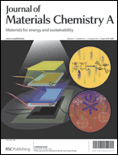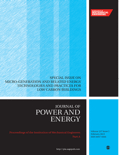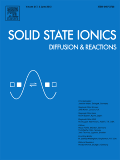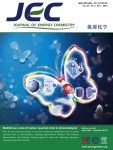
Journal of Power Sources Advances
Scope & Guideline
Transforming Energy Systems Through Cutting-edge Science
Introduction
Aims and Scopes
- Battery Technologies:
The journal extensively covers advancements in battery technologies, including lithium-ion, sodium-ion, and all-solid-state batteries, focusing on materials, performance metrics, and modeling approaches. - Energy Conversion Systems:
Research related to fuel cells and electrolyzers is a core area, with emphasis on improving efficiency, durability, and performance of these systems through innovative materials and engineering solutions. - Electrolyte Development:
There is a significant focus on the development of novel electrolytes, including solid, liquid, and hybrid systems, to enhance ionic conductivity and stability in various electrochemical applications. - Modeling and Simulation Techniques:
The journal promotes the use of advanced modeling and simulation techniques to predict performance, degradation, and efficiency of power sources, facilitating better design and optimization. - Materials Science in Energy Storage:
Research on novel materials, including nanostructured and composite materials, is a key aspect, aiming to improve the electrochemical properties and overall performance of power sources.
Trending and Emerging
- Sodium-Ion Technologies:
There is an increasing emphasis on sodium-ion batteries, reflecting a shift towards exploring alternative energy storage systems that leverage abundant resources and potentially lower costs. - Data-Driven Approaches and Machine Learning:
The integration of machine learning and data analytics in battery research and modeling is emerging as a significant trend, facilitating real-time monitoring and predictive modeling of battery performance. - Advanced Characterization Techniques:
Recent studies highlight the trend towards utilizing advanced characterization techniques, such as X-ray tomography and spectroscopic methods, to gain deeper insights into material properties and battery behaviors. - Sustainable and Green Materials:
Research is increasingly focusing on sustainable materials for battery and fuel cell applications, including the recycling of battery components and the use of eco-friendly electrolytes. - Hybrid and Composite Materials:
The development of hybrid and composite materials for electrodes and electrolytes is gaining traction, aiming to enhance performance metrics like conductivity and mechanical stability.
Declining or Waning
- Conventional Lead-Acid Batteries:
Research on traditional lead-acid battery technologies appears to be waning, as the field shifts towards more advanced and efficient energy storage solutions such as lithium-ion and sodium-ion batteries. - Basic Electrochemical Processes:
There is a noticeable decline in studies focusing solely on fundamental electrochemical processes without application to novel materials or technologies, signaling a move towards more applied research. - Fuel Cell Durability Studies:
While fuel cell research remains important, specific studies focused narrowly on durability without integrated approaches to performance enhancement are becoming less frequent. - Historical Review Papers:
The journal has seen a decrease in publication of review articles summarizing past developments, as the focus shifts to more forward-looking research that proposes new technologies and methodologies.
Similar Journals

Journal of Materials Chemistry A
Empowering Research for Environmental ProgressJournal of Materials Chemistry A, published by the Royal Society of Chemistry, stands as a leading peer-reviewed journal in the fields of Chemistry, Materials Science, and Renewable Energy. With an impressive ranking within the top quartile (Q1) across these disciplines in 2023, this journal not only showcases groundbreaking research but also addresses pivotal challenges in sustainable materials and energy. Spanning from 2013 to 2024, it serves as a vital platform for scientists and engineers to present innovative solutions and advances in materials that directly contribute to environmental sustainability. Accessible to a broad audience, the journal's contributions are essential for anyone engaged in the development of new materials and technologies that promise to shape a greener future. With a commitment to high-quality open access publishing, the Journal of Materials Chemistry A is instrumental in disseminating impactful research to enhance scholarly communication and foster collaboration in an increasingly interconnected research landscape.

eScience
Leading the Charge in Environmental Science and InnovationeScience, published by KEAI PUBLISHING LTD, is an innovative open-access journal that has rapidly established itself as a leading platform in the fields of Electrochemistry, Materials Chemistry, and Renewable Energy, Sustainability, and the Environment. Since its inception in 2021, eScience has garnered recognition for its high-quality research, achieving an impressive Q1 ranking in each of its primary categories as of 2023. With a remarkable Scopus ranking—placing it among the top percentile of journals in these disciplines—eScience serves as an essential resource for researchers and practitioners aiming to advance knowledge and application in sustainable practices and materials innovation. As an open-access journal, eScience supports widespread dissemination of vital research, ensuring accessibility for all, which is critical in addressing contemporary global challenges. The journal's commitment to fostering interdisciplinary dialogue and collaboration positions it as a cornerstone for those dedicated to pushing the boundaries of scientific discovery.

RUSSIAN JOURNAL OF ELECTROCHEMISTRY
Advancing Research in Electrochemical TechnologiesThe Russian Journal of Electrochemistry, published by Pleiades Publishing Inc, is a reputable scientific resource that caters to the dynamic field of electrochemistry. Since its inception in 1996, this journal has become a platform for the dissemination of cutting-edge research, exploring both foundational studies and innovative applications within electrochemical science. Despite currently holding a Q4 categorization in its field, the journal is dedicated to enhancing its scholarly impact and visibility, reflecting its commitment to fostering advancements in electrochemical technologies. With its ISSN 1023-1935 and E-ISSN 1608-3342, the journal strives to reach a global audience of researchers, professionals, and students alike. Though the journal is not open access, its contents are crucial for anyone looking to stay at the forefront of electrochemical research and developments. The journal's editorial board includes well-respected experts, ensuring that published articles contribute significantly to the scientific community and pave the way for future innovations in the field.

Carbon Energy
Empowering research in carbon-based energy innovation.Welcome to Carbon Energy, an esteemed open-access journal published by WILEY that focuses on cutting-edge research in the field of energy and materials science. Since its inception in 2019, this journal has quickly established itself as a leading platform for disseminating impactful findings and innovations related to carbon-based energy solutions, renewable resources, and sustainability practices. With its impressive Q1 rankings in multiple categories—including Energy (miscellaneous), Materials Chemistry, and Renewable Energy—Carbon Energy is recognized for delivering high-quality, peer-reviewed content that meets the rigorous standards of the academic community. Through its open-access model, the journal ensures wide accessibility of research findings, making it an invaluable resource for researchers, professionals, and students alike. As we look toward the future, Carbon Energy aims to further its mission of advancing sustainable energy technologies and promoting interdisciplinary collaboration in tackling global energy challenges.

Batteries-Basel
Pioneering Insights in Battery ResearchBatteries-Basel, published by MDPI, is a premier open-access journal since 2015 that aims to serve the growing community focused on the technological advancements and innovations in battery science and related fields. Operating from its base in Switzerland, this journal publishes high-quality research covering the fields of Electrical and Electronic Engineering, Electrochemistry, and Energy Engineering and Power Technology. With a commendable Q2 ranking in multiple categories for 2023, it consistently strives to present cutting-edge studies, reviews, and practical applications that drive progress in energy storage technologies. Researchers and professionals will find invaluable insights within its pages, contributing to both theoretical understanding and practical deployment of battery technologies. Open access provides broad dissemination of knowledge, ensuring that discoveries reach a global audience, and fostering collaborative efforts to address the challenges posed by modern energy demands.

PROCEEDINGS OF THE INSTITUTION OF MECHANICAL ENGINEERS PART A-JOURNAL OF POWER AND ENERGY
Exploring the Frontiers of Mechanical EngineeringPROCEEDINGS OF THE INSTITUTION OF MECHANICAL ENGINEERS PART A-JOURNAL OF POWER AND ENERGY, published by SAGE PUBLICATIONS LTD, is a pivotal journal dedicated to advancing the fields of mechanical engineering and energy technology. With a history spanning from 1983 to 2024, this journal provides a respected platform for researchers and practitioners to disseminate findings that address contemporary challenges in power generation, energy efficiency, and sustainable engineering practices. As evidenced by its quarter ranking in Q3 within the categories of Energy Engineering and Power Technology, and Mechanical Engineering, it serves as a significant resource for academics aiming to enhance their understanding and explore innovation in these critical areas. While currently not an open-access journal, the research published here is invaluable for both ongoing education and professional practice, making it an essential read for anyone engaged in the engineering disciplines.

SOLID STATE IONICS
Unveiling innovations in solid state ionics.SOLID STATE IONICS, published by Elsevier, is a prestigious academic journal dedicated to the field of solid state ionics. Since its inception in 1979, the journal has steadily contributed to the advancement of knowledge regarding ionic conduction in solid materials, which is paramount in a multitude of applications, from energy storage systems to sensor technology. As evidenced by its strong ranking in 2023—positioned in the Q2 quartile across Chemistry, Condensed Matter Physics, and Materials Science—SOLID STATE IONICS is recognized as a vital resource for researchers, professionals, and students alike, providing high-quality peer-reviewed articles that foster scientific collaboration and innovation. Its ISSN is 0167-2738 and E-ISSN is 1872-7689, with an ongoing publication schedule aimed at featuring cutting-edge research through 2024. As an essential conduit for the dissemination of important findings in the field, researchers seeking to publish their work or explore new frontiers in solid state ionics will find this journal an invaluable resource.

Journal of Energy Chemistry
Advancing the Future of Energy SolutionsThe Journal of Energy Chemistry, published by Elsevier, is a premier international journal that has established itself at the forefront of research in the fields of electrochemistry and energy technology. With an impressive impact factor, this journal is classified in the Q1 quartile across multiple categories including Energy Engineering and Power Technology, Fuel Technology, and Electrochemistry, underscoring its significant contribution to advancing knowledge and innovation in energy systems. Based in the Netherlands, the journal offers open access to its cutting-edge research, allowing for broad dissemination and engagement among researchers, professionals, and students alike. The scope of the journal spans crucial topics from chemical energy storage to sustainable energy solutions, making it an essential resource for those looking to understand and contribute to the evolving landscape of energy chemistry.

Electrochemical Energy Reviews
Transforming Energy Landscapes with Cutting-edge ResearchElectrochemical Energy Reviews, published by SpringerNature, serves as an essential platform for the dissemination of cutting-edge research in the fields of electrochemistry, material science, and energy engineering. With an impressive impact factor and ranked in the Q1 category across multiple disciplines including Chemical Engineering and Energy Technology, this journal highlights its commitment to advancing knowledge and innovation within the energy sector. Operating since 2018, the journal not only provides a valuable resource for researchers and professionals but also invites contributions from students and emerging scholars interested in the pivotal role of electrochemical processes in sustainable energy solutions. Published in Germany and widely accessible to the global research community, Electrochemical Energy Reviews is an indispensable reference for those keen on exploring the future of energy technologies.

JOURNAL OF SOLID STATE ELECTROCHEMISTRY
Advancing the Frontiers of Solid-State ElectrochemistryThe Journal of Solid State Electrochemistry is a leading peer-reviewed journal dedicated to advancing the understanding and application of solid-state electrochemical systems. Published by Springer, this prestigious journal has been a staple in the field since its establishment in 1997, with an impressive range of topics covering Condensed Matter Physics, Electrochemistry, and Materials Science. It holds a notable Q2 category quartile ranking in several disciplines, including Electrical and Electronic Engineering, and boasts significant Scopus rankings—ranked #28 in Electrochemistry, showcasing its credibility and impact in the field. With a mission to disseminate high-quality research and innovative methodologies, the journal aims to foster cross-disciplinary collaboration among researchers, professionals, and students. While not open access, articles published in the Journal of Solid State Electrochemistry are integral for those exploring cutting-edge technologies through theoretical and practical approaches, ultimately enhancing our understanding of energy systems and materials' performance. Located in Germany, the journal continues to thrive internationally, providing a robust platform for scholarly communication.